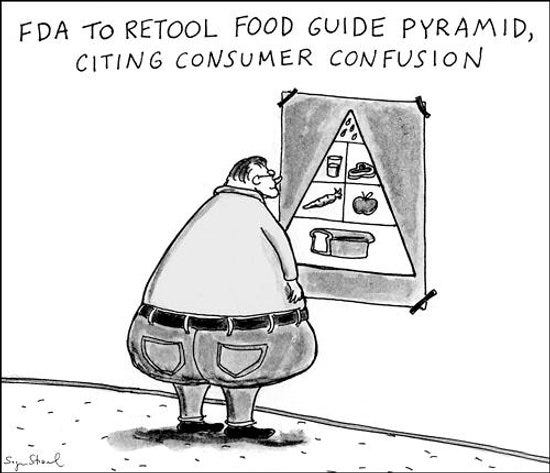The landscape of food and eating habits has changed dramatically over the past few decades. Up until the 1970s, obesity was a relatively uncommon concern, and the average person had little idea—or concern—about calorie counts. Fast forward to today, and the situation has flipped: obesity rates have skyrocketed, calorie counting is the norm, and our relationship with food has become increasingly complex.
@thenewlifechannel♬ original sound – The New Life Channel
How did this happen? The answers lie in two significant shifts in dietary advice and eating habits: the push to reduce fat and increase carbohydrates, and the rise of frequent eating throughout the day. Let’s explore how these changes have contributed to modern health challenges and why returning to simpler habits might be the key to better health.
The Low-Fat, High-Carb Era: A Misguided Approach

In the late 20th century, the world was introduced to the idea that dietary fat was the enemy of good health. Nutrition guidelines encouraged people to reduce fat intake and replace it with carbohydrates, including bread, pasta, and grains.
This shift was based on the belief that fat consumption was directly linked to heart disease and obesity. However, the reality was far more complex.
When fat was removed from foods, it was often replaced with sugar and refined carbs to maintain flavor and texture. This led to an unintended consequence: people consumed more sugar, which caused blood sugar levels to spike, followed by insulin surges and subsequent crashes. This cycle not only left people feeling hungrier but also contributed to insulin resistance and weight gain over time.
The directive to increase carbohydrate intake turned out to be counterproductive for weight management. Instead of slimming down, people became more dependent on foods that led to energy crashes and overeating.
The Rise of Meal Frequency

Another major change in eating habits occurred in the 1980s and 1990s: the increase in meal frequency.
Before the 1980s, the norm was to eat three meals a day—breakfast, lunch, and dinner. Snacks were not a regular part of the routine, and skipping a meal was considered perfectly normal. If someone wasn’t hungry, they simply waited until the next meal.
However, by the early 2000s, the idea of eating small meals throughout the day became mainstream. Nutrition advice from magazines, fitness gurus, and even some healthcare professionals promoted the idea that eating every 2-3 hours was essential for keeping the metabolism “stoked” and preventing overeating.
By 2014, the average number of meals and snacks consumed daily had increased to 5-6. This constant eating was no longer frowned upon—it was encouraged. Skipping a meal, on the other hand, was vilified, with dire warnings about slowed metabolism, muscle loss, and hunger-induced overeating dominating the narrative.
The Consequences of Constant Eating

While eating frequently might sound like a good idea in theory, it has had several unintended consequences:
1. Increased Insulin Production
Every time we eat, our body releases insulin to help regulate blood sugar levels. Frequent eating means insulin levels remain elevated throughout the day, preventing the body from accessing stored fat for energy. Over time, this contributes to insulin resistance, a condition that affects 88% of Americans today.
2. Weight Gain
Constant snacking, particularly on calorie-dense foods like chips, cookies, and sugary drinks, leads to a higher overall calorie intake. Without adequate periods of fasting, the body has little opportunity to burn stored fat, resulting in gradual weight gain.
3. Loss of Natural Hunger Cues
Eating every few hours disrupts the body’s natural hunger and fullness signals. Many people no longer recognize what true hunger feels like, leading to mindless eating and emotional overeating.
4. Metabolic Confusion
Our bodies are designed to function efficiently in both fed and fasted states. Constant eating eliminates the fasted state, which is when the body relies on stored fat for energy and undergoes essential repair processes like autophagy (cellular cleaning).
Why Skipping a Meal Isn’t the End of the World

Contrary to popular belief, skipping a meal is not only safe but can also be beneficial for your body.
When you skip a meal, your body doesn’t go into “starvation mode” as many fear. Instead, it switches to using stored fat for energy, a process called lipolysis. This is particularly important for those with insulin resistance, as it allows insulin levels to drop and fat-burning to occur.
Fasting for longer periods also activates autophagy, a process where the body clears out damaged cells and regenerates new ones. This has been linked to improved metabolic health, reduced inflammation, and even increased longevity.
What’s the Real Problem?

The real issue isn’t skipping meals; it’s the misguided notion that we need to eat constantly to be healthy. This advice has created a culture where food is always within arm’s reach, and eating has become a near-constant activity.
Instead of eating every 2-3 hours, allowing your body to experience periods of fasting can restore balance and improve overall health. Practices like intermittent fasting offer a structured way to incorporate fasting into your routine, with benefits ranging from improved insulin sensitivity to sustainable weight loss.
The Benefits of Intermittent Fasting
- Improved Insulin Sensitivity: Fasting lowers insulin levels, helping the body respond more effectively to this important hormone.
- Fat Burning: During fasting, the body switches to burning stored fat for energy, making it an effective tool for weight management.
- Enhanced Mental Clarity: Many people report sharper focus and improved concentration during fasting periods.
- Reduced Inflammation: Fasting helps lower inflammation markers in the body, reducing the risk of chronic diseases.
- Increased Energy: By relying on fat stores for fuel, many people experience more stable energy levels throughout the day.
To read more on the health benefits of Intermittent Fasting, read my blog on “8 Reasons To Consider Intermittent Fasting.”
Conclusion

The shift in eating habits since the 1970s—from low-fat diets to frequent snacking—has had a profound impact on public health. While these changes were initially intended to promote better health, they’ve instead contributed to rising rates of obesity, insulin resistance, and metabolic disorders.
The good news is that it’s never too late to make a change. By challenging outdated dietary advice and embracing practices like intermittent fasting, you can restore balance to your body and take control of your health.
If you’re curious about how intermittent fasting works and how it can help you improve insulin sensitivity, I invite you to explore my detailed guide: How Intermittent Fasting Helps You Lose Weight: A Complete Guide. It’s packed with practical tips and insights to help you get started.
Take the first step today—your body will thank you!
Your Thoughts Matter



